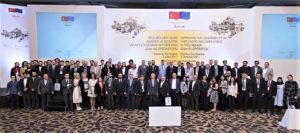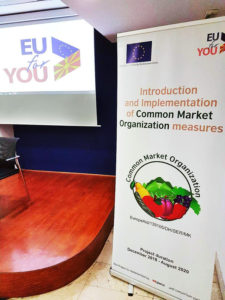
Technical Assistance for Implementation of Civil Society Dialogue and Civil Society Support Programmes (TR2015/DG/01/A5-01/001)
The overall aim of the project is to increase bilateral exchanges and cooperation between CSOs in Turkey and the EU at local, regional and national levels, to promote awareness raising initiatives on importance and benefits of membership of Turkey to the EU within Turkey and EU and on

Technical Assistance for Strengthening Social Dialogue, for Innovation and Change in Turkey
It can be said that the progression through an in-depth training programme and an understanding of the techniques associated are essential for a contemporary understanding of social dialogue concepts and their implementation. In this regard, the project aimed at social development and the enhancement of social cohesion within

Technical Assistance for Improving the Adaptability of Employers and Employees in TR33
Qualified individuals mean a powerful region and a powerful region requires investing in human resources. Hence, this assignment aimed to encourage employers and employees of SMEs in the TR33 Region (Kütahya, Afyonkarahisar, Manisa, and Uşak provinces), particularly by promoting lifelong learning. More specifically, the project’s purpose was to

Implementation of Common Market Organisations (CMO) in the Former Yugoslav Republic of Macedonia
The project’s overall objective is to increase marketing opportunities, economic development and overall productivity in the agricultural sector of North Macedonia while improving competitiveness of the agriculture sector in the country in line with EU accession requirements.

Technical Assistance for Facilitating Access of Disadvantaged Higher Education Students to the Labour Market
Research indicated that disadvantaged people, especially poor students, lack in participation in the labour market. Consequently, the purpose of the project was to increase the employability of disadvantaged people, facilitate their access to the labour market, and increase their access to public employment services. Helping disadvantaged people gain

Capacity Development of Employees and Employers via Information and Communication Technologies (ICT)
In Turkey, in common with all other countries, both employers and employees need to be aware of, and be able to use, the latest ICT tools in the workplace to improve the efficiency and competitiveness of their businesses and take best advantage of personal development opportunities. This project,

